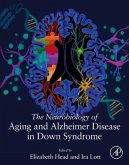In an ever-changing world, "The Caregiver at Geriatrics " is an essential guide for all those involved with the elderly. Combining professional expertise and humanity, this book explores the many facets of aging, offering innovative perspectives and practical tools for improving the quality of life of older people. The author highlights the importance of collaboration with animators and volunteers, emphasizing how the synergy between professionals and volunteers creates a warm and stimulating environment. These human interactions promote the social inclusion and personal fulfillment of seniors. By differentiating between types of dementia, the book offers a clear understanding of the various cognitive pathologies. This section provides healthcare professionals with the keys to accurate diagnosis and appropriate management, while raising awareness of the day-to-day challenges faced by sufferers. The evolution of symptoms and the stages of the disease are described with finesse, allowing the reader to project himself onto the patient's journey. This empathetic approach helps caregivers to adapt their interventions to the changing needs of individuals. In the face of these challenges, the book proposes adapted intervention strategies, emphasizing personalized approaches that respect the dignity and autonomy of the elderly. Reminiscence therapies and sensory and cognitive stimulation are presented as powerful tools for reviving memories and strengthening residual capacities. The author stresses the importance ofenvironmental design in reducing anxiety. By creating safe, soothing spaces, it is possible to reduce stress and improve seniors' well-being. Practical advice is given on how to adapt living spaces, whether in an institution or at home. Recognition of depression and anxiety is another crucial aspect. By identifying these disorders at an early stage, professionals can implement communication techniques to soothe the patient, fostering a relationship of trust and better adherence to care. Interprofessional collaboration, particularly with psychologists and psychiatrists, is emphasized for a holistic approach to health. The book encourages the acquisition of specific skills and presents available training programs, emphasizing the importance of supervision and professional support. Beyond the practical aspects, the book offers in-depth reflection on trends in the aging populationand the impact on healthcare systems. It explores the new expectations of the elderly, advances in gerontology, personalized and genetic medicine, andartificial intelligence in care as opportunities to rethink the care of the elderly. Economic issues are also addressed, with an analysis of financial care models and healthcare system reforms. The role of international organizations is discussed, putting global issues and collaborative solutions into perspective. In conclusion, the book synthesizes the knowledge acquired and offers a vision for the future of the profession. It encourages professionals to embrace change, continually train themselves and commit themselves with passion and humanity to the elderly.
Bitte wählen Sie Ihr Anliegen aus.
Rechnungen
Retourenschein anfordern
Bestellstatus
Storno








